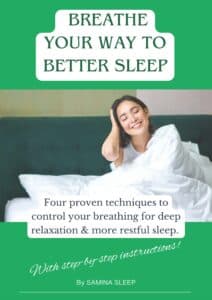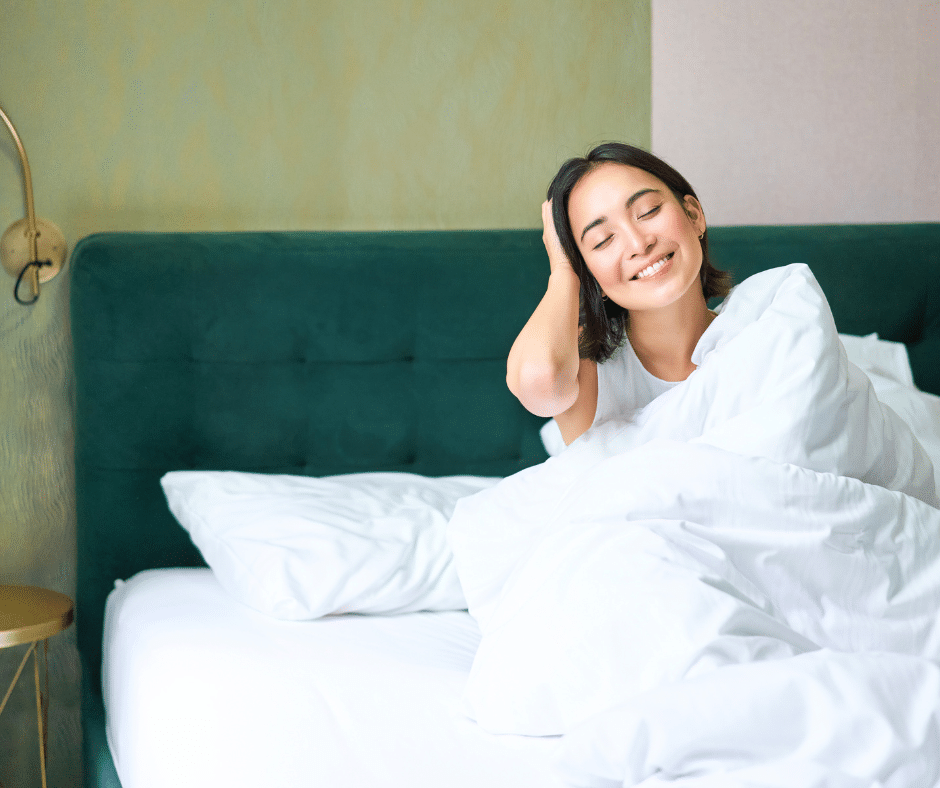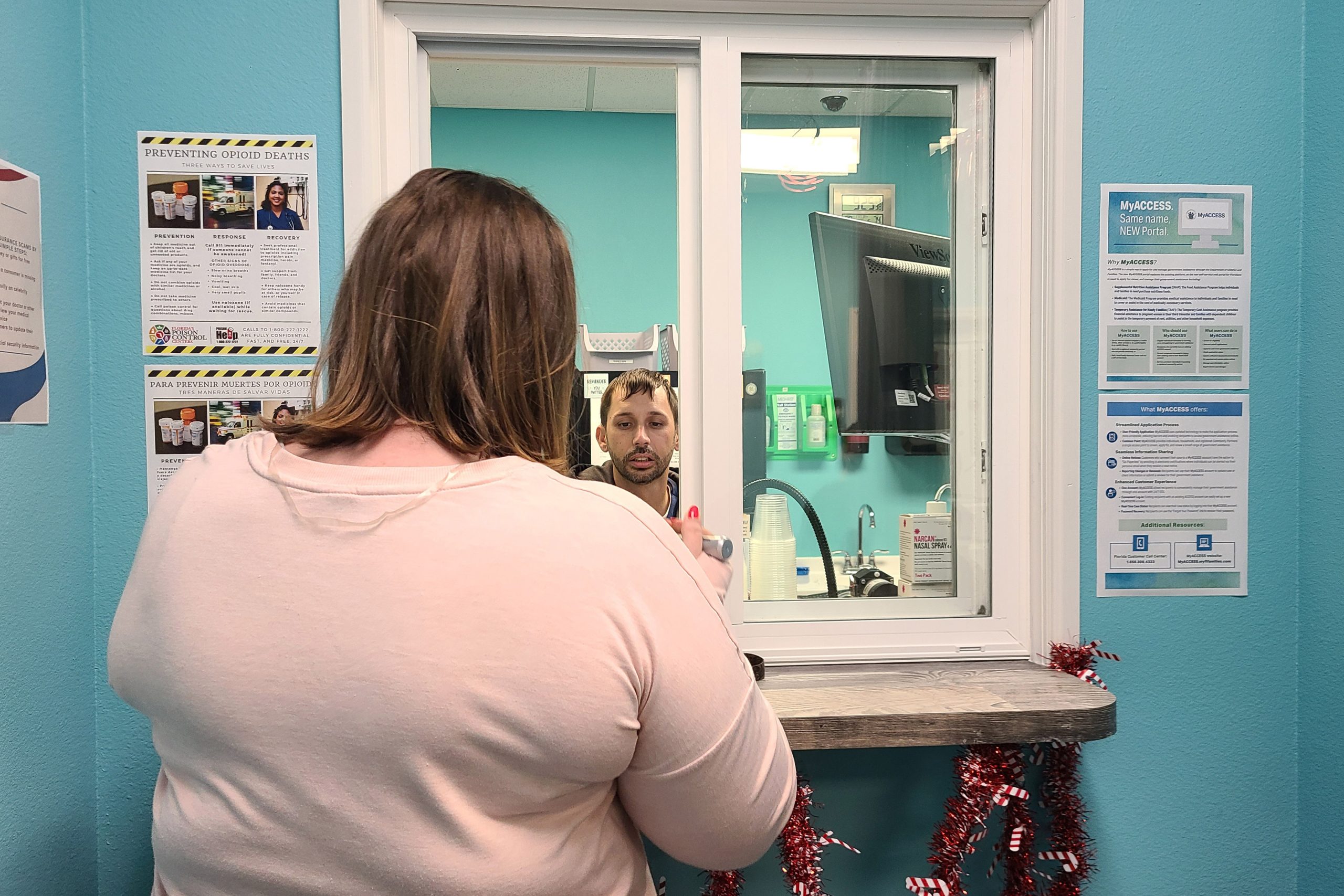A Health Hack for Stress Awareness Month
April is Stress Awareness Month. Yet, it’s one thing to be aware of stress; it’s another thing to do something about it. Do you struggle to fall asleep or have trouble staying asleep due to stress? If so, learning how to control your breathing can be a game-changer. In this article, we’ll discuss the connection between your breathing and sleep, and share several breathing exercises for better sleep. You can and should use breathwork as a simple and free health hack to calm your mind for better sleep.
The Link Between Breathing and Sleep
Breathing is an involuntary action that we mostly take for granted. In fact, you’re doing it right now without thinking about it (until we mentioned it, that is). But do you realize that how you breathe can greatly affect how you feel?
Your breath is closely tied to your central nervous system, which controls your fight or flight response. When you’re experiencing stress, your body goes into a state of hyperarousal releasing hormones like cortisol and adrenaline. Consequently, it’s difficult to relax and even more challenging to fall asleep in this stressed state.
That “wired and tired” feeling can make things go from bad to worse. The additional stress brought on by the fear of not being able to sleep has a name: somniphobia. It becomes a troubling cycle of experiencing stress and then losing sleep because you’re too worried about not being able to sleep! The cycle compounds all the rotten ways that being sleep deprived makes you feel: fatigued, irritable, anxious, depressed, unmotivated, moody, even more stressed out.
One simple yet effective health hack is to learn how to control your breathing. By activating your parasympathetic nervous system, you can relax both your mind and body making it easier to fall asleep. To help you on the journey to better sleep, get the free downloadable guide, Breathe Your Way to Better Sleep. You’ll learn four different breathing techniques with step-by-step instructions.
We hope you find our guide a valuable gift for you to use well beyond Stress Awareness Month.
Proven Relaxation Exercises for Intentional Breathing
Breathing exercises have been used for centuries as a proven way to reduce stress and promote relaxation. One technique included in our guide is abdominal or diaphragmatic breathing, also known as belly breathing. This involves taking deep breaths from your diaphragm rather than shallow breaths from your chest. By focusing on filling your belly with air and slowly exhaling, you can activate the relaxation response in your body, helping you unwind before bedtime.
Box breathing is another method that appears in our guide that athletes and Navy SEALs, for example, use to maintain composure under extreme pressure. Box breathing involves inhaling for a count of four, holding for a count of four, exhaling for a count of four, and holding again for a count of four. This rhythmic pattern helps regulate your breath and calm your mind, making it easier to drift off into a peaceful sleep.
In addition to diaphragmatic breathing and box breathing, our guide also includes instructions for alternate nostril breathing and 4-7-8 breathing. Alternate nostril breathing involves closing one nostril at a time while inhaling and exhaling through the other nostril, balancing the flow of energy in the body. 4-7-8 breathing consists of inhaling quietly through your nose for a count of four, holding your breath for seven counts, then exhaling audibly through your mouth for eight counts.
Use a technique on its own or combine a couple, depending on what works best for you. By incorporating simple yet powerful breathwork exercises into your daily routine, you can train yourself to relax more easily and improve the quality of your sleep. Whether you’re dealing with racing thoughts or general anxiety, whatever is keeping you up at night, taking a few minutes to focus on your breathing can make all the difference. Now, you can finally get the rest you deserve.
Get the Guide: Breathe Your Way to Better Sleep
Stress Awareness Mo nth gives you an opportunity to prioritize self-care. One way is through learning relaxation techniques that can benefit both your mental well-being and physical health. Through the simple act of controlling your breath, you can tap into the power of your parasympathetic nervous system and find tranquility amidst the stress and chaos of your days. It’s a good tool to find calmness at bedtime.
nth gives you an opportunity to prioritize self-care. One way is through learning relaxation techniques that can benefit both your mental well-being and physical health. Through the simple act of controlling your breath, you can tap into the power of your parasympathetic nervous system and find tranquility amidst the stress and chaos of your days. It’s a good tool to find calmness at bedtime.
Better sleep begins with relaxation – so, why not give our tips for controlled breathing a try? Download Breathe Your Way to Better Sleep today. Take control of your breath, take control of your stress, and take control of your sleep tonight.
For additional tips to sleep better, read our article, Beyond Counting Sheep: A Guide to Achieving Your Best Sleep



